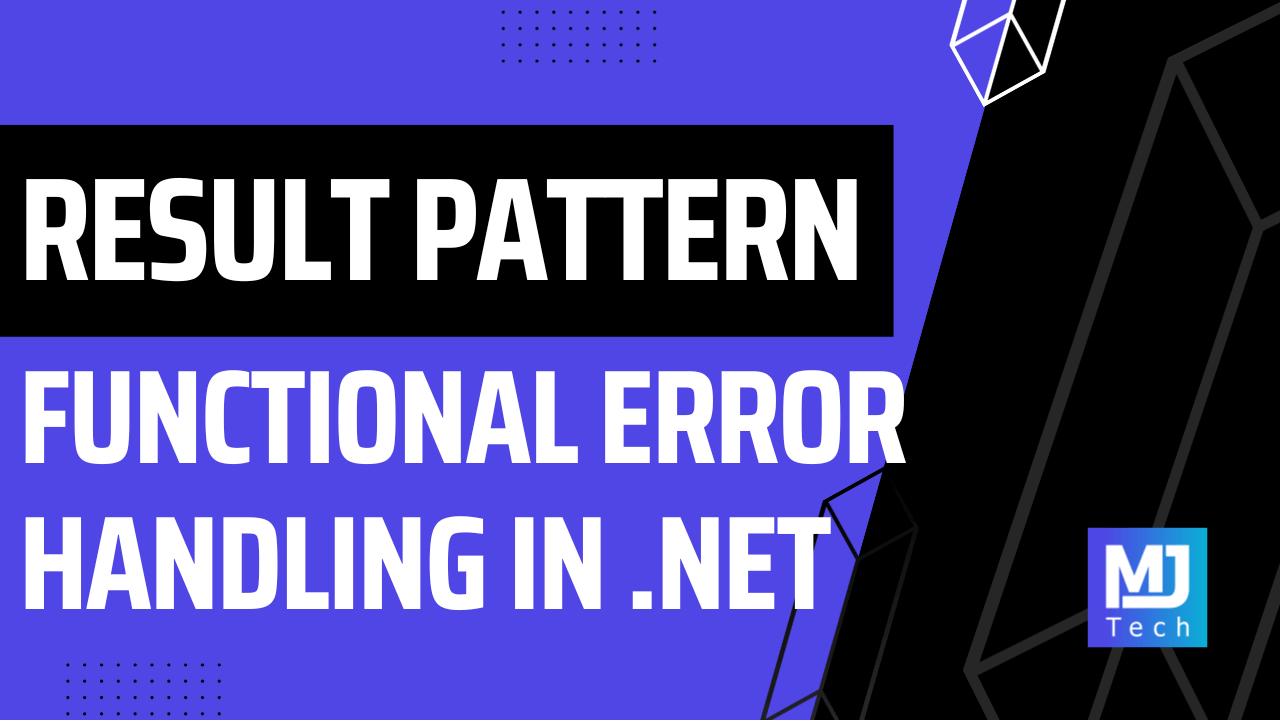In this newsletter, we'll be covering three ways to create middleware in ASP.NET Core applications. Middleware allows us to introduce additional logic before or after executing an HTTP request. You are already using many of the built-in middleware available in the framework. I'm going to show you three approaches to how you can define custom middleware: With Request Delegates, By Convention, and Factory-Based.| www.milanjovanovic.tech
How should you handle errors in your code? This has been a topic of many discussions, and I want to share my opinion. One school of thought suggests using exceptions for flow control. This is not a good approach because it makes the code harder to reason about. The caller must know the implementation details and which exceptions to handle. Exceptions are for exceptional situations. Today, I want to show you how to implement error handling using the Result pattern. It's a functional approach t...| www.milanjovanovic.tech



